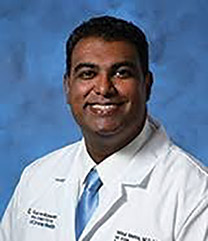Hello and welcome to a new edition of New Retinal Physician. We have some wonderful articles in this issue and I think you will enjoy it.
The world of retina is always very exciting, with new technologies and new treatments constantly emerging. Artificial intelligence (AI) has obviously been the big story over the past year, but, like everything in medicine, the regulations do limit its adoption in clinical practice. Possibly the biggest issue holding up adoption is going to be patient privacy. When these large language models (LLM) use cloud computing, all that information is at risk of being hacked and patient privacy can be compromised.
Recently, Kaiser Permanente in Northern California tested an AI assistant that helps doctors with charting. Early results show that this assistant could save physicians an hour per day, and some of the work could be done at home. That could change the game for many in the medical field.
But AI is not just for medical documentation. Companies are implementing AI to help low-vision patients see better. This technology works for people whose retinas or optic nerves are so damaged that image magnification isn’t enough. What many retina specialists are waiting for is an AI interpretation for our diagnostics, like optical coherence tomography, or fundus and autofluorescence photography. Researchers are currently working on these kinds of systems, and it is only a matter of time before they are implemented.
One unknown is going to be how the FDA decides to regulate AI, and how stringent the validation testing needs to be. Another challenge will be determining who is held liable when the AI is wrong, as is bound to happen. My guess is that the physician will be held liable, primarily because we as physicians do a mediocre (at best) job lobbying Congress on our own behalf. My request is that we as a physician community make an effort now to ensure that when these new technologies become accepted that the physician-patient relationship is not left behind. The last thing we want is for the physician-patient relationship to be further devalued and our skillset considered expendable.
If you find topics like this to be interesting and would like to discuss them with retina colleagues from around the world, come to the American Retina Forum’s meeting this summer. It will be held August 7-10 in Carlsbad, California. This is a meeting where discussion is prioritized—“no suits, no ties, no egos” is our motto. It’s a really fun meeting where we don’t take ourselves too seriously; we share our experiences so that our retina community can use that knowledge to improve patient care. This is a family-friendly meeting and people bring their significant others and children for some summer fun in sunny California. Visit the American Retina Forum’s website, www.retinaforum.org, for details or to register. We hope to see you there! NRP









